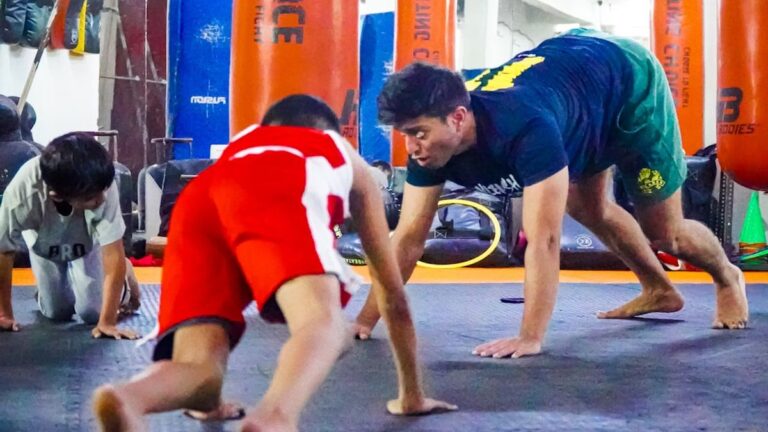Introduction: The Intersection of Mindfulness and Athleticism
Have you ever found yourself lost in the moment during a workout? Perhaps you were running, and the world around you faded away, leaving only the rhythm of your breath and the pounding of your feet on the pavement. It’s a beautiful feeling, isn’t it? This state of being—where you’re fully immersed in the present—is known as mindfulness, and it has emerged as a powerful tool in the realm of sports and fitness. In a world where distractions abound and stress levels soar, the integration of mindfulness techniques into athletic training is gaining traction, transforming not just how athletes perform, but also how they perceive their physical and mental capabilities.
The Science Behind Mindfulness
At its core, mindfulness is about being fully aware of your thoughts, emotions, and sensations in the present moment—without judgment. The practice has its roots in ancient meditation traditions, but it has been embraced by modern psychology, particularly in the context of stress reduction and mental health. Research suggests that mindfulness can improve focus, decrease anxiety, and enhance overall well-being, all of which are crucial for athletes aiming to reach their peak performance.
How Mindfulness Affects Performance
Several studies have explored the connection between mindfulness and performance in sports. For instance, a study published in the journal Psychology of Sport and Exercise revealed that athletes who practiced mindfulness showed significant improvements in their focus and emotional regulation. This led to better performance outcomes, especially in high-pressure situations.
But don’t just take my word for it. Consider the story of a well-known tennis player, who, after struggling with anxiety during matches, turned to mindfulness practices. By incorporating meditation and breathing exercises into his routine, he not only improved his mental game but also found a renewed passion for the sport. It’s like he discovered a new dimension to his training—one that didn’t rely solely on physical prowess, but also on mental strength.
Mindfulness Practices for Athletes
So, how does one cultivate mindfulness in the context of sports and fitness? Here are some practical techniques that athletes can incorporate into their training routines:
1. Breath Awareness
Breath is the lifeline of mindfulness. Focusing on your breath can ground you in the moment and help you manage anxiety and stress. Whether you’re warming up or in the middle of a competition, take a few moments to close your eyes and simply breathe. Inhale deeply through your nose, hold for a moment, and exhale slowly through your mouth. Trust me, it works wonders.
2. Body Scanning
This technique involves paying attention to different parts of your body and noticing any sensations or tensions. Start from your toes and work your way up to your head, observing how each area feels. This practice can enhance your body awareness and help you recognize where you might be holding tension during performance.
3. Visualization
Visualization isn’t just for the dreamers—it’s a powerful tool for athletes. Picture yourself performing at your best. Imagine the sounds, the sights, and the feelings associated with success. This mental rehearsal can boost your confidence and prepare you for real-life situations.
4. Mindful Movement
Whether you’re lifting weights, running, or practicing yoga, being present during your movements can lead to enhanced performance. Focus on the mechanics of your body as you move, feeling each muscle engage and relax. This heightened awareness can lead to better technique and reduced risk of injury.
Anecdotes from the Field
There’s something to be said for real-life experiences. I remember chatting with a marathon runner who, after years of racing, discovered the power of mindfulness. She told me about a race where she felt the usual pre-race jitters creeping in. Instead of allowing anxiety to take over, she used her breath awareness technique. “It was like flipping a switch,” she recalled. “I focused on my breath, and suddenly, I was just running. No pressure, no worries—just me and the road.”
This approach not only improved her performance but also rekindled her love for the sport. Many athletes share similar stories, attesting to how mindfulness helped them reconnect with their passion and joy in competition.
The Role of Coaches and Teams
While individual practices are essential, the role of coaches and teams cannot be overlooked. Coaches who understand the significance of mindfulness can foster environments that promote mental well-being. This might involve integrating mindfulness practices into training sessions or encouraging athletes to explore their mental game.
Creating a Mindful Culture
Imagine a team where mindfulness is part of the culture. Team meetings could begin with short mindfulness exercises, or athletes could be encouraged to share their experiences with mindfulness techniques. This creates a supportive atmosphere where athletes feel empowered to explore their mental skills alongside their physical training.
Challenges and Misconceptions
Despite the growing popularity of mindfulness in sports, it’s not without its challenges. Some athletes may be skeptical, viewing mindfulness as “too fluffy” or not suited for their competitive nature. Others may struggle to incorporate mindfulness into their already packed schedules. (I mean, who has time to sit and meditate when there’s a gym session waiting?)
Addressing Skepticism
To address these misconceptions, it’s crucial to highlight the tangible benefits that mindfulness can bring. Providing tangible examples of successful athletes who integrate mindfulness into their training can help shift perspectives. It’s not about replacing hard work but enhancing it with mental resilience.
Mindfulness Beyond Competition
One of the most beautiful aspects of mindfulness is its applicability beyond the athletic arena. It’s a life skill that can support overall well-being. Athletes who practice mindfulness often report improved relationships, better stress management, and a greater sense of fulfillment in their lives.
The Holistic Approach
Mindfulness encourages a holistic approach to fitness and health. It’s not just about lifting heavier weights or running faster; it’s about cultivating a positive mindset and fostering a sense of balance. This is particularly important in today’s fast-paced society, where stress and anxiety are prevalent. By integrating mindfulness into their lives, athletes can develop resilience that serves them well outside of competition.
Conclusion: A New Era of Athleticism
As we move forward, the integration of mindfulness into sports and fitness is likely to become more pronounced. Coaches, athletes, and sports organizations are beginning to recognize that performance is as much about the mind as it is about the body. The journey toward elevating performance through mindfulness is not just about achieving victory; it’s about fostering a deeper connection to oneself and the sport.
In the end, whether you’re a professional athlete or someone who enjoys a casual jog in the park, embracing mindfulness can lead to enhanced performance and a richer, more fulfilling experience. So, the next time you lace up your shoes or hit the gym, take a moment to breathe, to be present, and to enjoy the journey. After all, it’s not just about the finish line; it’s about finding joy in every step along the way.













